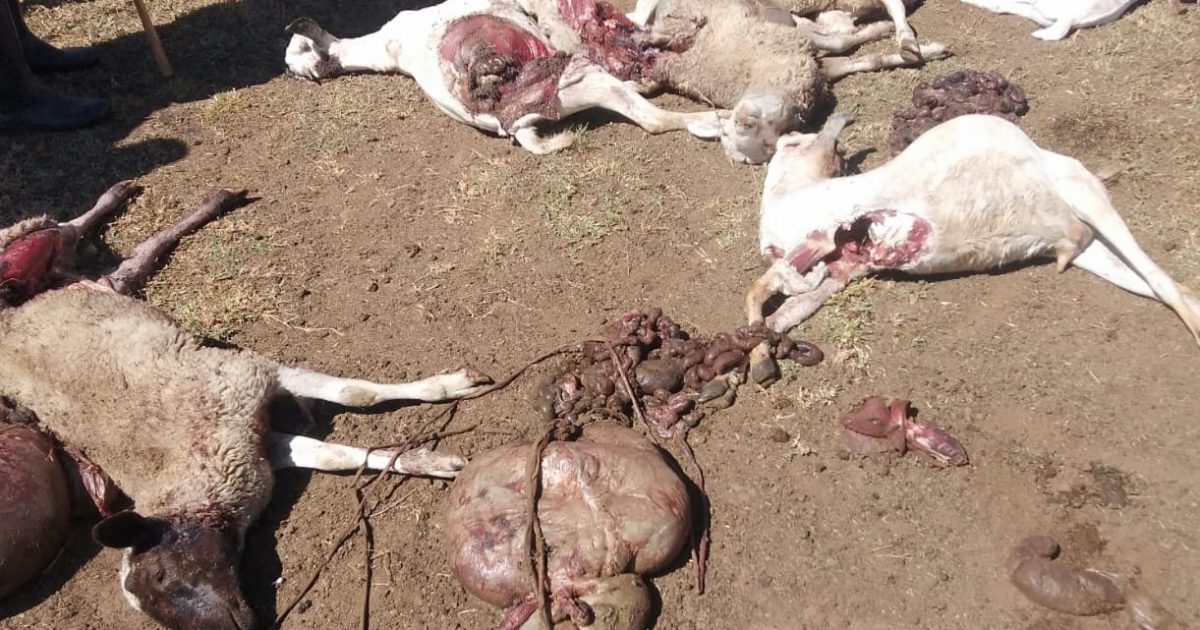A pack of hyenas invaded a homestead in Olmayiana village in Lekanka area, Narok West Sub- County on Sunday night and killed over 30 sheep, leaving scores of others maimed.
Speaking to KNA, Monday, Narok County Kenya Wildlife Service (KWS) Senior Warden, Mr Richard Chepkwony, said the hyenas invaded the sheep pen of William Rimpa Nkuruma, at about 11:00pm and attacked the sheep therein, leaving behind a trail of destruction.

The hyenas are said to have strayed out of the nearby Olkinyie Conservancy to wreck the havoc. The dry spell that has been experienced in the area for the last several months has forced animals to move out the Maasai Mara Game Reserve and other conservancies in search of food and water.
Mr Chepkwony termed the incident as unfortunate and advised the victim to file a claim for compensation which will be looked into and investigated by the County team before being forwarded to Nairobi.
Narok is a wildlife county earning more than 60 per cent of its income from wildlife with the famous Maasai Mara Game Reserve known worldwide for its spectacular wildebeest’s migration proving the bulk of this revenue.
But there has been an increase in incidences of human-wildlife conflict in the area that borders the famous Maasai Mara National Game Reserve where several lives and livestock have been lost in the recent past and others injured by wildlife, bringing to the fore the ever-thorny issue of human-wildlife conflict in the County and the Country at large. Experts now say environmental degradation and increasing settlements due to population pressure had caused the wildlife in the Game Reserve to move out and this has brought about conflicts.
The demarcation and fencing of land for settlement in the County that largely depend on tourism has interfered with wildlife migratory corridors or dispersal areas, prompting the wildlife to flee, hence human-wildlife conflict.
Experts advise that calling on all County Governments and Narok County Government in particular to implement the Spatial Land use Policy as stipulated in the New Constitution in a bid to stem rising human-wildlife conflict.
The implementation of this Land use Policy, they say will ensure proper planning of the land in various parts of the Country.
The new Wildlife Conservation and Management Act 2013, impose stiffer penalties for wildlife related offenses with an aim of saving wildlife and also enhanced compensation for victims of human-wildlife conflict.
But this has left a heavy compensation burden on the taxpayers where many victims of these conflicts have not been paid for a long time as enough funds have not been allocated to the Ministry of Tourism and Wildlife to effect the compensation, leaving the affected families suffering.
By Mabel-Keya – Shikuku





